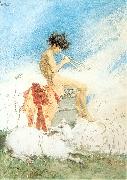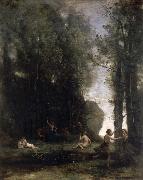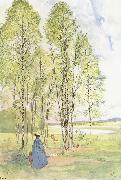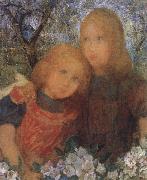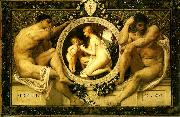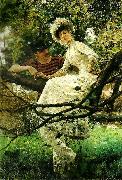Wholesale Oil Painting Reproductions No Minimum and Door to Door! |
|||||||||||
|
|
|||||||||||

|
|||||||||||
|
|
|
||||||||
All Marsal, Mariano Fortuny y Oil Paintings |
||||||||
|
|
||||||||
|
|
||||||||
|
Artist Introduction: Spanish, 1838-1874
Painter and etcher. His work drew both on earlier Spanish art, especially the paintings and etchings of Goya, and on contemporary foreign works, notably the paintings of the Italian Macchiaioli and those of the French artist Ernest Meissonier. |
||||||||
|
|
||||||||
|
Idyll Painting ID:: 19309 |
1868
Watercolor on paper
Museo del Prado, Madrid. |
|||||||
Height Width |
INS/CM Quality |
|||||||
|
X |
| |||||||
|
|
||||||||
All camille corot Oil Paintings |
||||||||
|
|
||||||||
|
|
||||||||
|
Artist Introduction: Paris 1796-Paris 1875 Corot's students included Alfred Sisley, Camille Pissarro, Berthe Morisot, Stanislas Lepine, Adolphe Appian and Dagnan-Bouveret. French painter, draughtsman and printmaker. After a classical education at the Coll?ge de Rouen, where he did not distinguish himself, and an unsuccessful apprenticeship with two drapers, Corot was allowed to devote himself to painting at the age of 26. He was given some money that had been intended for his sister, who had died in 1821, and this, together with what we must assume was his family's continued generosity, freed him from financial worries and from having to sell his paintings to earn a living. Corot chose to follow a modified academic course of training. He did not enrol in the Ecole des Beaux-Arts but studied instead with Achille Etna Michallon and, after Michallon's death in 1822, with Jean-Victor Bertin. Both had been pupils of Pierre-Henri Valenciennes, and, although in later years Corot denied that he had learnt anything of value from his teachers |
||||||||
|
|
||||||||
|
|
Idyll Painting ID:: 38738 |
mk141
1859
Oil on canvas
162.5x130cm
|
||||||
Height Width |
INS/CM Quality |
|||||||
|
X |
| |||||||
|
|
||||||||
All Carl Larsson Oil Paintings |
||||||||
|
|
||||||||
|
|
||||||||
|
Artist Introduction: Swedish Realist Painter, 1853-1919
Swedish painter, illustrator and printmaker. He came from a poor family and studied (1866-76) at the Konstakademi in Stockholm, supporting himself throughout this period. From 1871 to 1878 he contributed illustrations to the comic journal Kaspar and the Ny illustrerad tidning. From 1875, for several decades, he was a prolific book illustrator, his most renowned work in this field being his drawings for Föltskärns beröttelser ('The Barber-surgeon's tales'; pubd 1883-4) by Zacharius Topelius, and the Rococo-inspired watercolours for the Samlade skaldeförsök ('Collected attempts at poetry'; pubd 1884) by the 18th-century Swedish author Anna Maria Lenngren. |
||||||||
|
|
||||||||
|
|
Idyll Painting ID:: 41676 |
mk163
Watercolor
1901
|
||||||
Height Width |
INS/CM Quality |
|||||||
|
X |
| |||||||
|
|
||||||||
All Piet Mondrian Oil Paintings |
||||||||
|
|
||||||||
|
|
||||||||
|
Artist Introduction: Dutch
1872-1944
Piet Mondrian Location
was a Dutch painter.
He was an important contributor to the De Stijl art movement and group, which was founded by Theo van Doesburg. He evolved a non-representational form which he termed Neo-Plasticism. This consisted of a grid of vertical and horizontal black lines and the use of the three primary colours.
When 47-year-old Piet Mondrian left his artistically conservative native Holland for unfettered Paris for the second and last time in 1919, he set about at once to make his studio a nurturing environment for paintings he had in mind that would increasingly express the principles of Neo-Plasticism about which he had been writing for two years. To hide the studio's structural flaws quickly and inexpensively, he tacked up large rectangular placards, each in a single color or neutral hue. Smaller colored paper squares and rectangles, composed together, accented the walls. Then came an intense period of painting. Then again he addressed the walls, repositioning the colored cutouts, adding to their number, altering the dynamics of color and space, producing new tensions and equilibrium. Before long, he had established a creative schedule in which a period of painting took turns with a period of experimentally regrouping the smaller papers on the walls, a process that directly fed the next period of painting. It was a pattern he followed for the rest of his life, through wartime moves from Paris to London??s Hampstead in 1938 and 1940, across the Atlantic to Manhattan.
At 71 in the fall of 1943, Mondrian moved into his second and final New York studio at 15 East 59th Street, and set about again to create the environment he had learned over the years was most congenial to his modest way of life and most stimulating to his art. He painted the high walls the same off-white he used on his easel and on the seats, tables and storage cases he designed and fashioned meticulously from discarded orange and apple-crates. He glossed the top of a white metal stool in the same brilliant primary red he applied to the cardboard sheath he made for the radio-phonograph that spilled forth his beloved jazz from well-traveled records, Visitors to this last studio seldom saw more than one or two new canvases, but found, often to their astonishment, that eight large compositions of colored bits of paper he had tacked and re-tacked to the walls in ever-changing relationships constituted together an environment that, paradoxically and simultaneously, was both kinetic and serene, stimulating and restful. It was the best space, Mondrian said, that he had ever inhabited. Tragically, he was there for only a few months: he died of pneumonia in February 1944. |
||||||||
|
|
||||||||
|
|
Idyll Painting ID:: 54283 |
mk235
c.1900
oil on canvas
73.5x62cm
|
||||||
Height Width |
INS/CM Quality |
|||||||
|
X |
| |||||||
|
|
||||||||
All Gustav Klimt Oil Paintings |
||||||||
|
|
||||||||
|
|
||||||||
|
Artist Introduction: Austrian Art Nouveau Painter, 1862-1918
Gustav Klimt (July 14, 1862 ?C February 6, 1918) was an Austrian Symbolist painter and one of the most prominent members of the Vienna Art Nouveau (Vienna Secession) movement. His major works include paintings, murals, sketches, and other art objects, many of which are on display in the Vienna Secession gallery. Klimt's primary subject was the female body, and his works are marked by a frank eroticism--nowhere is this more apparent than in his numerous drawings in pencil.
Klimt's work is distinguished by the elegant gold or coloured decoration, often of a phallic shape that conceals the more erotic positions of the drawings upon which many of his paintings are based. This can be seen in Judith I (1901), and in The Kiss (1907?C1908), and especially in Danaë (1907). One of the most common themes Klimt utilized was that of the dominant woman, the femme fatale. Art historians note an eclectic range of influences contributing to Klimt's distinct style, including Egyptian, Minoan, Classical Greek, and Byzantine inspirations. Klimt was also inspired by the engravings of Albrecht D??rer, late medieval European painting, and Japanese Rimpa school. His mature works are characterized by a rejection of earlier naturalistic styles, and make use of symbols or symbolic elements to convey psychological ideas and emphasize the "freedom" of art from traditional culture. |
||||||||
|
|
||||||||
|
|
idyll Painting ID:: 65228 |
1884, wien, historisches museum der stadt wien, 49.5x73.5cm
se |
||||||
Height Width |
INS/CM Quality |
|||||||
|
X |
| |||||||
|
|
||||||||
All Carl Larsson Oil Paintings |
||||||||
|
|
||||||||
|
|
||||||||
|
Artist Introduction: Swedish Realist Painter, 1853-1919
Swedish painter, illustrator and printmaker. He came from a poor family and studied (1866-76) at the Konstakademi in Stockholm, supporting himself throughout this period. From 1871 to 1878 he contributed illustrations to the comic journal Kaspar and the Ny illustrerad tidning. From 1875, for several decades, he was a prolific book illustrator, his most renowned work in this field being his drawings for Föltskärns beröttelser ('The Barber-surgeon's tales'; pubd 1883-4) by Zacharius Topelius, and the Rococo-inspired watercolours for the Samlade skaldeförsök ('Collected attempts at poetry'; pubd 1884) by the 18th-century Swedish author Anna Maria Lenngren. |
||||||||
|
|
||||||||
|
|
idyll Painting ID:: 66298 |
odaterad
se |
||||||
Height Width |
INS/CM Quality |
|||||||
|
X |
| |||||||
|
|
||||||||
All Lord Frederic Leighton Oil Paintings |
||||||||
|
|
||||||||
|
|
||||||||
|
Artist Introduction: British
1830-1896
Lord Frederic Leighton Locations
|
||||||||
|
|
||||||||
|
|
Idyll Painting ID:: 70587 |
c. 1880 - 1881
Oil on canvas
104.1 x 212.1 cm
|
||||||
Height Width |
INS/CM Quality |
|||||||
|
X |
| |||||||
|
|
||||||||
All Lord Frederic Leighton Oil Paintings |
||||||||
|
|
||||||||
|
|
||||||||
|
Artist Introduction: British
1830-1896
Lord Frederic Leighton Locations
|
||||||||
|
|
||||||||
|
|
Idyll Painting ID:: 72521 |
c. 1880 - 1881
Oil on canvas
104.1 x 212.1 cm
cjr |
||||||
Height Width |
INS/CM Quality |
|||||||
|
X |
| |||||||
|
|
||||||||
All Frederick Leighton Oil Paintings |
||||||||
|
|
||||||||
|
|
||||||||
|
Artist Introduction: 1830-1896
He was an English painter and sculptor. His works depicted historical, biblical and classical subject matter. Leighton was born in Scarborough to a family in the import and export business. He was educated at University College School, London. He then received his artistic training on the European continent, first from Eduard Von Steinle and then from Giovanni Costa. When in Florence, aged 24, where he studied at the Accademia di Belle Arti, he painted the procession of the Cimabue Madonna through the Borgo Allegri. He lived in Paris from 1855 to 1859, where he met Ingres, Delacroix, Corot and Millet. Flaming JuneIn 1860, he moved to London, where he associated with the Pre-Raphaelites. He designed Elizabeth Barrett Browning's tomb for Robert Browning in the English Cemetery, Florence in 1861. In 1864 he became an associate of the Royal Academy and in 1878 he became its President (1878?C96). His 1877 sculpture, Athlete Wrestling with a Python, was considered at its time to inaugurate a renaissance in contemporary British sculpture, referred to as the New Sculpture. His paintings represented Britain at the great 1900 Paris Exhibition. Icarus and DaedalusLeighton was knighted at Windsor in 1878, and was created a baronet eight years later. He was the first painter to be given a peerage, in the New Year Honours List of 1896. |
||||||||
|
|
||||||||
|
|
Idyll Painting ID:: 74179 |
Date c. 1880 - 1881
Medium Oil on canvas
Dimensions 104.1 x 212.1 cm
cyf |
||||||
Height Width |
INS/CM Quality |
|||||||
|
X |
| |||||||
|
|
||||||||
|
Prev Next
|
||||||||
|
|
||||||||
|
Related Paintings to Frederick Leighton :. |
||||||||
|
|
||||||||
|
CONTACT US |
